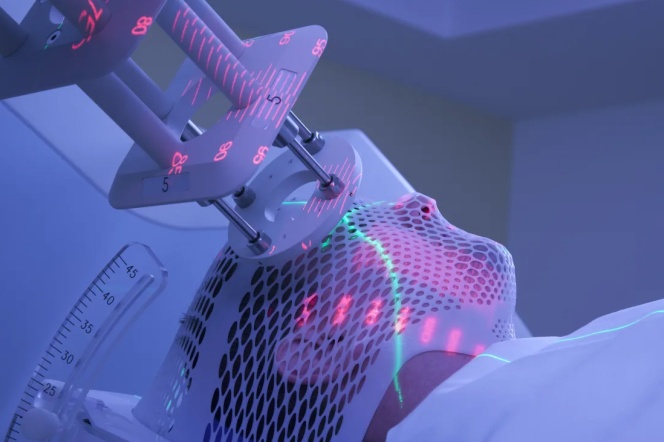Data dodania: 2022-06-03
Seminarium Wydziału FTiMS – 09.06.2022 r.

Serdecznie zapraszamy na seminarium poświęcone nowoczesnym technikom radioterapii protonowej.
Prelegentami będą specjaliści z dwóch wiodących ośrodków radioterapii w USA:
Prof. Stephen Avery, Ph.D. (University of Pennsylvania’s Perelman School of Medicine)
oraz
Prof. Xuanfeng (Leo) Ding, Ph.D. (William Beaumont Hospital, Royal Oak)
Seminarium odbedzie się 9 czerwca w sali 2/07 Centrum Nanotechnologii A o godz. 9.30 w trybie hybrydowym.
Thursday, June 9th 2022:
- 9:30-10:30 a.m.
Prof. Stephen Avery, Ph.D.

Title: “Research on Strategies for Quality Assurance of Proton-FLASH Radiotherapy and Global Health in Medical Physics”
This talk will focus on specific areas in research and education of medical physics. In research, the thermo-acoustic method in combination with 3D dosimetry tools has the potential to more accurately predict actual dose delivered to tumor and organs at risk (OARs) on an individual patient basis. Minimizing dose range uncertainty has the real potential to significantly reduce the volume of irradiated healthy tissue and OARs surrounding the target volume as well as increase dose to the gross tumor volume (GTV). With the innovation that these approaches provide to both FLASH (ultra-high dose-rate) and conventional proton therapy, treatment will potentially be better tolerated, more accurate, and personalized. In education, there could possibly be devastating consequences of medical treatments due to the major deficits in the ability to deliver adequate radiotherapy treatments in low and middle income countries (LMICs). We’ll discuss ideas to build capacity through a research-based program in medical physics, identify LMIC specific research opportunities and maintain an international research collaboration through a virtual research platform to develop a strategy for long-term sustainable growth in low and middle income countries.
Brief CV
Dr. Avery is an Associate Professor of Radiation Oncology at the University of Pennsylvania’s Perelman School of Medicine. His eight-year tenure as director of the Medical Physics Graduate Programs (MPGP) has set the stage for establishing the University of Pennsylvania as a premier program in Radiation Oncology and Medical Physics. Dr. Avery conducts research which focuses on quality assurance in proton therapy treatment delivery and increasing medical physics capacity for Global Health. He has expertise in proto-acoustics, the measurement of sound waves generated by clinical proton beams, with a specific application of combining kHz ultrasound signals to proton therapy. This thermo-acoustic phenomenon can be applied to proton range-verification, which provides a simple and inexpensive method for real time, in vivo monitoring of proton irradiation. For Global Health initiatives he has received funding to generate data not currently available anywhere else covering infrastructure, education, and research needs. The data will also be used to develop concept funding from the US National Institutes of Health (NIH) with a focus on global health. Dr. Avery’s current goal is the continuing development of a Global Oncology University (GO-U) – a multi-institutional, interdisciplinary, international research program with a focus on Global Health.
- 10:30-11:30 a.m.
Prof. Xuanfeng (Leo) Ding, Ph.D.

Title: A Journey to SPArc (Spot-scanning Proton Arc therapy)
Rotating hundreds of tons of proton gantry while delivering the spot and energy layers in a submillimeter accuracy sounds like a scientific fiction. This talk will review the following topics in the journey of SPArc technology:
- the history of the proton arc therapy development in the last two decades;
- Recent technique breakthrough which enables the rotation proton arc therapy in a clinical proton system at Beaumont;
- Potential clinical benefits and applications;
- Treatment planning optimization algorithm;
- Preliminary data from quality assurance measurements
- And future roadmap toward the clinical implementation of such treatment technology.
Short bio:
Dr. Ding received his Ph.D. in Physics from Wake Forest University in 2012, and finished his residency training at the University of Pennsylvania 2014. After commissioned the first PBS compact proton system in Willis-Knighton Cancer Center, Dr. Ding joined William Beaumont Hospital, Royal Oak, MI in 2015, as the lead proton physicist and assistant professor. Dr. Ding’s research interests include proton arc technique, adaptive therapy, and motion management. He received several extramural research grants as the PI and was granted multiple patents. Dr. Ding published over 40 peer-reviewed papers and hundreds of conference abstracts. He is certified by the American Board of Radiology in Therapeutic Radiologic Physics. He served as the co-chair in European Society of Radiotherapy and Oncology (ESTRO) physics workshop: Particle Arc Therapy in 2022, president of the Great Lakes Chapter AAPM in 2020 and committee members of several AAPM task and work groups.
190 wyświetleń
Więcej
-
2026-02-04
Rozpocznij studia II stopnia na WFTIMS!
-
2026-01-28
Hackathon społeczny Idea2Impact
-
2026-01-08
Konkurs Qemetica Industrial Challenge



